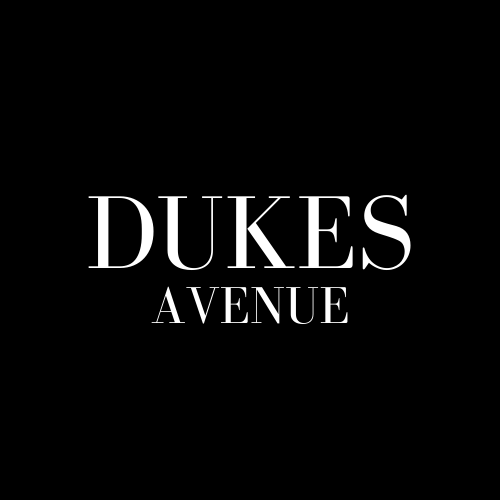Article Cover Photo: ©Floral Deco via canva.com
Starting a blog can be one of the most rewarding projects anyone can begin. It’s a long journey full of ups and downs, but one that brings with it so much satisfaction and could eventually develop from a passion project into a money-making business; from a hobby to a career.
When I decided to start Dukes Avenue in early 2018, I was searching for a creative outlet. A place where I could explore my love of writing and where I could document my travels – both for myself, as well as to inspire others. Little did I know back then, that Dukes Avenue would become so much more than a fun side project that I would work on at the weekend and over time, it has slowly evolved from a personal blog to an online publication featuring various writers (in fact, amateur bloggers should email me if interested in guest writing!).
The present global pandemic we are all facing has encouraged many to explore alternative forms of income streams, and the idea of growing an online business is becoming more and more appealing. This has been a huge driver in me wanting to write this article, for readers to feel inspired to start their own blogging career and perhaps eventually become their own boss.
BUT – I’d be lying if I said it’s easy. It is definitely a challenge, and truth be told, it has taken me almost three years to really hone in on my niche, target audience and writing style. Admittedly, there were many things that I wish I learnt sooner that could have saved A LOT of time. Fortunately, amateur bloggers wanting to do the same can learn from my mistakes, so they don’t have to make them themselves. From personal experience, here are 10 of the top mistakes that I wish I avoided, and that amateur bloggers might find helpful.
- 10 Mistakes Amateur Bloggers Should Avoid
- 1. Not Defining a Niche
- 2. Not Knowing Your Audience
- 3. Imitating Others and Drawing Comparisons
- 4. Not Understanding the Difference Between Hosted and Self-Hosted
- 5. Throwing Spaghetti at the Wall to See What Sticks
- 6. Not Learning Search Engine Optimisation (SEO)
- 7. Not Ensuring Site is Mobile Optimised
- 8. Not Having a Monetisation Strategy
- 9. Neglecting a Mailing List
- 10. Not Treating it as a Business
10 Mistakes Amateur Bloggers Should Avoid
And so, without further ado and in no particular order, here are some of the top mistakes an amateur blogger makes, yet should avoid. Remember that the advice given here assumes that readers are looking to start amateur blogs that will eventually generate an income. Personal blogs or blogs written purely for pleasure can, of course, disregard these suggestions and continue writing for the sheer joy of writing!
1. Not Defining a Niche
Defining a niche is the very first step in your blogging journey. At present, there are approximately 600 million blogs in the world today and whilst it’s never too late to start a blog, it’s critical to establish your area of expertise from the very beginning. It’s no longer enough to start a generic travel or beauty blog and hope to quickly monetise as there are just so many out there! Instead, try to focus on something specific: for example, if thinking of starting a beauty blog, perhaps you might want to focus on niches such as luxury skincare or cruelty-free makeup.
The more you niche down on your subject matter and content, the more you’ll begin to grow an audience of readers that look to you as an authority in the subject. Keeping your blog focused and relevant could lead to monetisation so much faster than if you target many different topics. Once you’ve established your overall niche, you can then start thinking about your content pillars, that is, 3 to 5 subsections of your niche to create the foundation of your overall content strategy.
Also, don’t forget to pick a domain name that will reflect everything you plan to write about! The following links will help with that:
- How to Choose a Domain Name – Smart Blogger
- How To Choose A Blog Name You Won’t Regret – BloggingWizard
- 7 Best Blog Name Generators – WP Beginner
2. Not Knowing Your Audience
By this point, you should have already chosen your niche (your ‘what?’) and likely already know what value you would like your blog to provide (your ‘why?’), now it’s time to think about ‘who?’. Who is your target audience or ideal reader, who do you write for? A useful exercise is to start picturing your ideal reader in your mind and listing their characteristics:
- What does he or she like?
- Where do they live?
- What do they do for fun?
- What is most useful to them?
These are important questions to ask to ensure that the content you put out serves that ideal reader you have created in your mind. Not knowing who you write for will make it harder to attract a loyal and engaged audience. While this may not be an issue at first, it may become harder when it comes to monetising your blog.
3. Imitating Others and Drawing Comparisons
When I first started blogging, I had no idea how many online resources are available offering guidance and advice on best practises. In fact, it was only a year into my blogging journey that I began to invest in high quality courses which have taught me what I now know.
Back then however, and admittedly in my naivety, I turned to other well-established bloggers that I would read personally, and that had built lucrative online businesses with huge social media followings. I thought if I imitate what they do, I’ll get lucky too. Of course, this was wrong, and when you won’t see the same level of success when first starting out, that’s when the comparisons start being drawn. It’s easy to think things like: why am I not seeing the same amount of success? Is my content so terrible? Should I give up on my dreams? Turn those thoughts away from your mind and instead think of the points below:
- Do not compare your chapter 1 to someone else’s chapter 20: remember that the most successful bloggers have been doing this for some time (likely YEARS) and chances are, what worked for them when they started is now outdated and will no longer generate the same rates of success. The bar has been upped massively, so don’t beat yourself up if you’re not seeing the same results. Focus on what needs to be done now and eventually, you will reach you own chapter 20.
- The world doesn’t need another blogger identical to one that already exists: but there is always room for anyone providing even more value than what is already out there!
- Remember comparison is the thief of joy!
4. Not Understanding the Difference Between Hosted and Self-Hosted
Anyone looking to set up a professional blog should only consider self-hosting on WordPress – to be clear, that’s WordPress.org and NOT WordPress.com. Our article on Why It’s Never to Late to Start a Blog explains the difference between hosted and self-hosted in more depth, but in a nutshell, a self-hosted website would have it’s own domain name and the user has full access to all the site files, meaning the site can be customised in any way they like.
Self-hosting comes at a cost, and although this cost is quite reasonable, it may put some new bloggers off. Whilst this is understandable, it is definitely something worth considering to avoid future problems – changing over from WordPress.com to WordPress.org can be quite time-consuming, so it’s definitely worth planning ahead if wanting to make money blogging.
5. Throwing Spaghetti at the Wall to See What Sticks
I’m sure you’ve heard this expression before, but if not, it refers to the act of trying multiple different methods to achieve a goal in the hopes that one of them works. This definitely applied to me personally when I was a newbie blogger. The learning curve to getting a blog off the ground is very steep, and there is so much that you might be tempted to do to increase your blog traffic.
In addition to actually setting up the blog and creating quality content, you may be tempted to dedicate a lot of time to Instagram, Facebook, Twitter, Pinterest, setting up email marketing or even creating a podcast! Even typing it all is overwhelming, let alone doing it all!
The day will come when you will be able to outsource all of these things, but until then, accept that you will likely give yourself a MAJOR burnout if trying to learn and master each of these platforms. Take it from personal experience! If your primary goal is to grow your blog and increase traffic, there are really only two things that you absolutely need to master to achieve just that, and those are Pinterest and SEO!
6. Not Learning Search Engine Optimisation (SEO)
If there was one item on this list I could prioritise the most, it would be learning search engine optimisation from the get-go. This was probably my biggest mistake when starting a blog, and it’s one of the most common mistakes amateur bloggers make when starting out. It took me over two years of randomly writing articles to get my act together, buy an SEO course and start implementing everything that I should have been doing from the beginning. It then took a further six months to backtrack through all of those old articles to search engine optimise them, which meant putting my business back 6 months unnecessarily!
Fast forward a few months, SEO is something that I have now mastered and am seeing huge returns from in terms of website traffic. If starting a blog and spending a lot of time on Instagram hoping that the followers will convert to traffic, I can assure you that learning SEO, rather than spending hours engaging on social media, will give you FAR more rewards.
If you’re new to SEO and want to nail some of the basics, make sure to download our free guide on 20 SEO tips for beginners! It also includes my recommended SEO WordPress plugin (spoiler alert: it’s not Yoast), my favourite toolkit for effective keyword research, as well as tips on nailing each of your blog posts!
If, on the other hand, you’ve been through the freebie and want to really up your SEO game, be sure to check out the Dukes Avenue SEO course: ‘SEO Secrets for WordPress Users‘. It goes through absolutely everything you need to know to get your content ranking high on Google, shares tips on how to find the best keywords, advice on link building, web hosting, and even a little bit about blog design and optimal website architecture!
7. Not Ensuring Site is Mobile Optimised
More and more people are using their phone and tablet to access the internet and this is something that is set to continue. If you’re ready to start a brand new blog and are in the process of choosing between either a free theme or purchasing an off-the-shelf one, it is critical to ensure that the theme is mobile optimised. Whilst not always the case, free themes are less likely to be mobile optimised to their full potential.
Why does this matter, you may be wondering. Mobile optimisation is quite important for SEO purposes, and if your website gets distorted when viewed on smaller screens it will likely be pushed down in search engine results pages (SERPs), which is the opposite of what we want to achieve! Unless planning on changing the theme in the future, you may have to hire a developer to make edits to your website’s code in order to fix the problem! It may be more worth it to invest in a great theme earlier on – at least, I wish I had done!
8. Not Having a Monetisation Strategy
Once you’ve set up your blog, how do you plan to make money from it? There is no right answer to this, but knowing how you plan to earn from your blog will allow you to form a better strategy for reaching your goals. Admittedly, when I set up my own blog I had no idea how it would generate any income and this meant that I was not working towards anything! I was writing aimlessly with no clear vision in sight and again, this majorly delayed progress.
This is another of the common amateur blogging mistakes, so I’ve listed some monetisation strategies below to give you a head start:
- Affiliate links
- Sponsored posts/ paid for advertorials
- Advertising
- Selling your own products, courses, services
9. Neglecting a Mailing List
An email list will eventually become one of your online business’s most valuable possessions, yet email list building is often neglected by amateur bloggers in favour of other tasks, like growing a following on social media. However, unlike social media platforms that work off highly secretive algorithms, an email list is something that YOU OWN and control. It should also tie in to your monetisation strategy, as your subscribers are likely to be warm leads who are actually interested in the content you are putting out. In other words, they are the ‘low hanging fruit’ when you come to launch your own (digital) products.
In addition, having a strong email list is great for promoting blog posts, for distributing your affiliate links and for notifying your audience of upcoming launches!
10. Not Treating it as a Business
To wrap everything up, it is critical to treat your blog as a business from the very beginning – if you want it to eventually generate revenue like a business. From my own experience, here are some of the things that I have learnt:
- Publish consistently: set yourself a manageable publishing schedule and follow it. Being consistent in publishing will give readers cause to keep coming back, especially if expecting new articles published on at same day, at the same time every week.
- Invest Money and Time in Your Blog: just like every business, the saying ‘you need to spend money to make money’ holds true. If you intend on turning your blog into your full-time career, it’s critical that you invest in both yourself and the tools that you need to ensure success. This could include training courses, hiring freelance employees to assist in areas where you may lack expertise, cameras (check out my article on the best cameras for bloggers), and other useful toolkits such as Keysearch for keyword research, Canva for creating images, Lightroom for editing photos, and so on.
- Set Realistic Deadlines and Stick to Them!: at the beginning of your blogging journey, write out a business plan just like you would for any other business. Your business plan should include your goals and the anticipated timeline for achieving them. Stick to your plan and its deadlines diligently and continue to update it as you progress through your blogging journey.
Don’t forget to pin this article if you found it helpful, and follow Dukes Avenue on Pinterest for more!




Sarah is a syndicated freelance writer and editor of Dukes Avenue. She founded Dukes Avenue in 2018 as a creative outlet while working at a London hedge fund. What initially started as a small blog has become a widely read luxury lifestyle online publication targeted at the modern woman, with content curated to inspire readers to live their best and most fulfilled lives. Sarah has lived in London, Malta, and, most recently, the United Arab Emirates and uses her travels and experiences to inspire much of the content.
-
Sarah Borg Barthethttps://dukesavenue.com/author/sarah-borg-barthet/
-
Sarah Borg Barthethttps://dukesavenue.com/author/sarah-borg-barthet/
-
Sarah Borg Barthethttps://dukesavenue.com/author/sarah-borg-barthet/
-
Sarah Borg Barthethttps://dukesavenue.com/author/sarah-borg-barthet/






